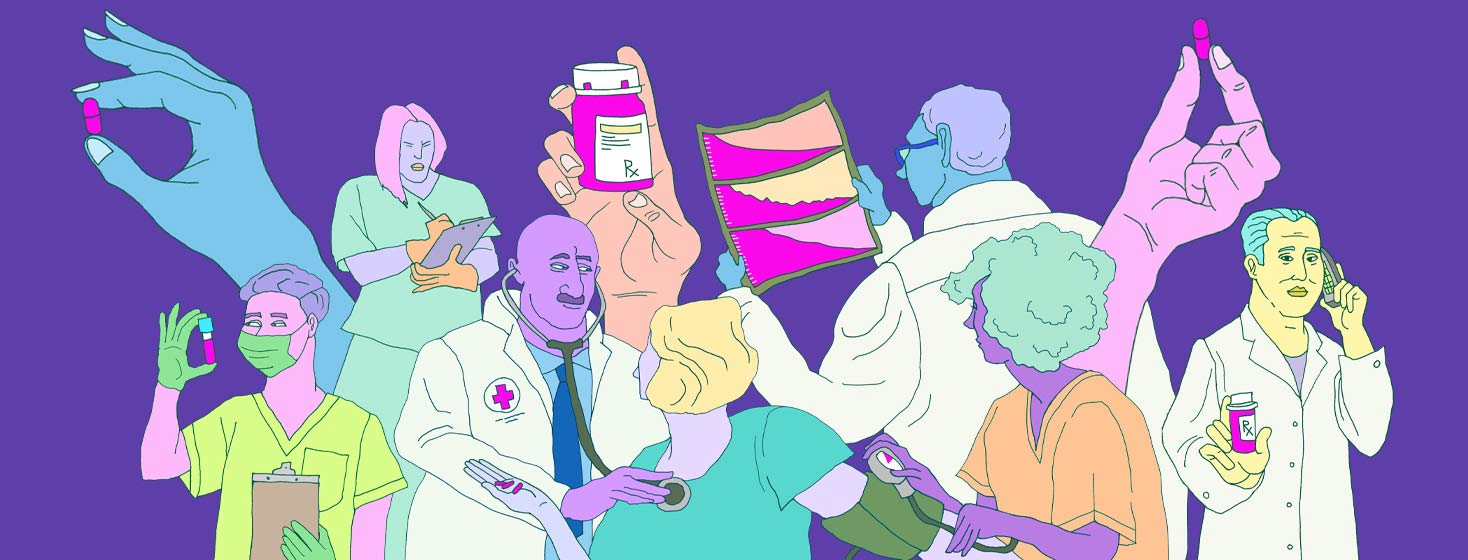Recommendations for Using Antiretroviral Drugs for HIV
A key treatment for HIV is antiretroviral therapy or ART. ART involves taking a mix of medicines every day. It works by keeping down the levels of the virus that causes HIV (viral load). ART can keep viral loads so low that they are not detectable.1
ART does not cure HIV. But it can help people with HIV live longer, healthier lives and reduce the chance of passing HIV to others.1
Current guidance on how to take antiretrovirals
If you do not have HIV, but worry you might be at risk, you have options. Preventive drugs can help protect you. These are called pre-exposure prophylaxis or PrEP. They come in a form that can be taken daily by mouth or in a long-acting injection.2
If you or a loved one are diagnosed with HIV, experts recommend beginning ART immediately. Treatment should start within 7 days from diagnosis. But the best option is to start that same day, if possible.2,3
ART begins with medicines taken by mouth every day. Usually, ART contains 2 or 3 different types of medicine. There are many different combinations. Some ART regimens are combined into a single pill.3
Once your viral load is low and stable, your doctor may switch you to a long-acting medicine. This is given as a shot every 2 months.2
How do antiretrovirals affect my other conditions?
Some people have other conditions in addition to HIV. When more than 1 illness or health condition occurs at the same time, they are called comorbidities. Comorbid illnesses can interact in ways that make both worse.4
Because HIV weakens the immune system, some people with HIV may get other types of infection more easily. These are called opportunistic infections. Common opportunistic infections in people with HIV are:2
- Tuberculosis
- Tuberculosis meningitis
- Cryptococcal meningitis
Your doctor may need to treat other conditions you have before you start ART. While taking ART, you may experience weight gain or other differences in how your body makes or uses energy.2
One good thing about starting ART early is that people who are aging with HIV are living longer, healthier lives. In fact, about half of people with HIV in the United States are 50 years old or older. Some have been living with HIV for some time. Others acquired the virus later in life.5
Some people with HIV may have other, unrelated health conditions. This is especially true for those who are aging with HIV. Conditions associated with aging with HIV, but which are not caused by HIV, include:5
- Cardiovascular (heart and blood vessel) disease
- Diabetes
- Renal (kidney) disease
- Cancer
Differences in access to ART
Accessing ART and staying on it can be challenging. People from traditionally underserved communities may have an even harder time getting past these barriers. Barriers may include:2,6
- Lack of access to health services
- Fear of stigma
- Difficulty getting to clinics or the pharmacy
- Lack of social support to help you stay on ART
A clinical trial in South Africa compared people living with HIV who started ART early to those who did not. One of the things it found was that obstacles to accessing ART need to be identified and removed. Doing so will allow more people to benefit from ART.7
A different program in a sexual health clinic gave people recently diagnosed with HIV a 1-month supply of ART. The clinic also helped the newly diagnosed people find HIV care. Within 3 months, participants in the program had significantly lower viral loads than people with HIV outside the program who did not have immediate access to ART.8
The program showed that when there is equity in access to ART, it only takes a little time to suppress the virus. This helps individuals by letting them live healthier lives. It also helps communities by reducing the risk of the virus being passed to others.8

Join the conversation